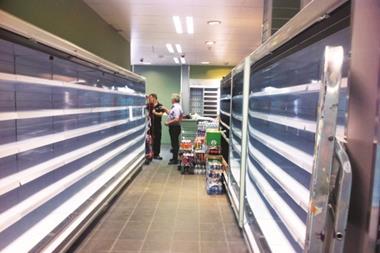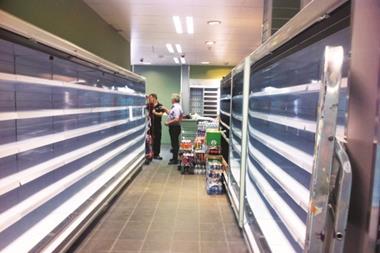The introduction of next year’s National Living Wage has already dented investment levels in the convenience sector, according to new research by the Association of Convenience Stores.
Investment levels have fallen by 35% over the last three months as retailers prepare for the National Living Wage of £7.20 an hour next April, replacing the existing National Minimum Wage of £6.50.
Over the last three months, convenience stores across the UK have invested £116m in their businesses compared to £177m in the previous quarter, the ACS Investment Tracker Survey reveals.
ACS chief executive James Lowman said: “Convenience stores are still investing in their businesses, but this has fallen significantly over the last three months as retailers begin to make tough decisions about where to cut costs to prepare for the impact of the upcoming National Living Wage. We know from our research that retailers cut staff hours in their business when wages go up, and we expect this impact to be even greater when the sector is faced with £167m of extra wage costs next year.”
Optimism in the convenience sector has also fallen to its lowest level since August 2013 as retailers also contend with plans to change Sunday Trading hours to allow large stores to open all day on Sundays.
Lowman added: “Government policy since the election has been bad for local shops. We are weeks away from the introduction of a carrier bag charge that will exclude small retailers despite calls from us and other organisations for these stores to be included; the Living Wage announcement was made without consultation with businesses or the Low Pay Commission, and plans to devolve Sunday Trading hours to local authorities would hurt small stores.”
Among those still investing in their stores, refrigeration remains the most popular form of investment, followed by shelving, store signage and in-store lighting. Regionally, the South West remains the area of the UK that is seeing the most investment, while London is seeing the least investment by local shop owners.
The majority of retailers (68%) are using their own reserves to fund investment in their store, with just 5% of independent stores going to banks for funding.





















No comments yet